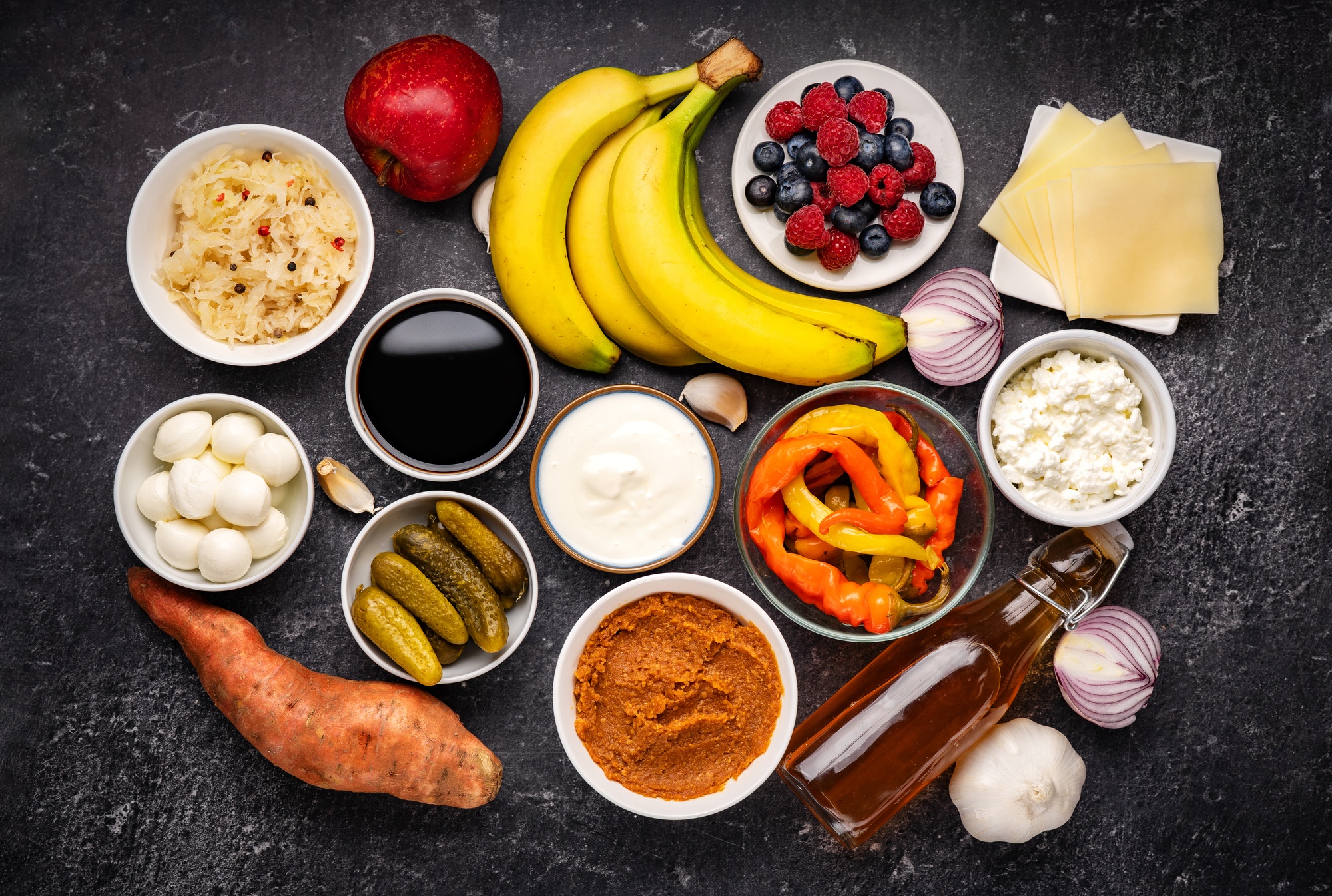Gut-Longevity Link: Your Microbiome’s Secret Powers
There is a Longevity Link to Your Gut
Ever heard your gut called your “second brain”? It’s not just a catchy phrase; it’s actually pretty accurate! What’s going on down there, within your gut, impacts way more than just digestion. It profoundly affects your mood, your immune system, and—here’s the big one—how long and how healthily you live. We’re talking about a direct gut-longevity link that scientists are just beginning to fully understand. Your microbiome, that bustling community of tiny organisms, is holding some serious secret powers for your lifespan.
At livetobe101.com, we’re obsessed with unraveling these kinds of deep connections, helping you make sense of complex health science so you can live your absolute best life. livetobe101.com was built to help users like you make smarter decisions with confidence, and understanding your gut’s role in longevity is one of the most critical.
Meet Your Microbiome: A Bustling Inner Ecosystem

Inside your digestive tract, especially your large intestine, there’s a thriving city of trillions of microorganisms. We’re talking bacteria, viruses, fungi, and other microbes. Collectively, they’re called your gut microbiome. Don’t worry, most of ’em are good guys! They’ve got a symbiotic relationship with you; you provide them a home, and they do a whole lot of work for you.
- Digestion Powerhouses: They help break down food components your own body can’t, especially complex carbohydrates and fiber.
- Vitamin Factories: They synthesize essential vitamins like K and B vitamins.
- Immune System Trainers: A huge portion of your immune system (around 70-80%!) resides near your gut. Your gut bugs essentially “train” your immune cells.
- Mood Influencers: They produce neurotransmitters (like serotonin, which impacts mood) and influence brain chemistry.
The Gut-Longevity Axis: How It All Connects
So, how does this microscopic world affect something as grand as longevity? It’s all about how a healthy, diverse microbiome can positively influence key aging pathways in your body.
1. Inflammation Control: Chronic, low-grade inflammation is a major driver of aging and almost all age-related diseases—think heart disease, diabetes, even neurodegenerative conditions. A balanced, diverse gut microbiome helps keep this inflammation in check. Certain beneficial bacteria produce short-chain fatty acids (SCFAs) like butyrate, which are incredibly powerful anti-inflammatory compounds.

2. Immune System Fortification: A robust gut microbiome trains your immune system to distinguish between friend and foe. This means it can effectively fight off pathogens while avoiding overreacting to harmless substances (like certain foods), reducing systemic inflammation and autoimmune responses that can accelerate aging.
3. Nutrient Absorption & Metabolism: A healthy gut ensures you’re absorbing vital nutrients efficiently from your “Longevity Plate.” It also plays a key role in metabolic health, influencing blood sugar regulation and preventing insulin resistance, both crucial for healthy aging.
4. Brain Health & Cognitive Function: The “gut-brain axis” is a two-way communication highway. A healthy gut sends positive signals to the brain, influencing mood, stress response, and even cognitive function. Dysbiosis (an imbalanced gut) can contribute to neuroinflammation and impact your sharp mind as you age.
5. Cellular Repair & DNA Protection: Some research suggests that a healthy microbiome may influence processes like DNA repair and telomere maintenance. For instance, compounds produced by gut bacteria can impact telomerase activity, an enzyme that helps maintain telomere length, which is linked to cellular longevity. (Source: For a deep dive into the gut microbiome’s role in aging, check out reviews in journals like Nature Aging or Cell Host & Microbe. One notable review on “The Gut Microbiome and Healthy Aging” often cites work in this area.)
Key Metrics: What Does a “Good” Gut Look Like?
It’s not about having more bacteria, but having diverse bacteria. Think of it like a healthy rainforest versus a monoculture farm.
| Microbiome Characteristic | Impact on Longevity & Health |
| High Diversity | More resilient, adaptable, produces wider range of beneficial compounds. Supports robust immune function. |
| Abundance of Beneficial Bacteria | Produces short-chain fatty acids (e.g., Bifidobacterium, Lactobacillus). Reduces inflammation. Supports gut barrier. |
| Low Presence of Harmful Bacteria | Less production of toxins, less inflammation, stronger gut barrier. |
| Intact Gut Barrier | Prevents “leaky gut,” where toxins enter the bloodstream, triggering inflammation. |
Nourishing Your Gut for a Longer Life
You really can directly influence your microbiome through your lifestyle choices, particularly what you eat!

- Eat Plenty of Fiber (Prebiotics): This is the main food source for your good gut bacteria. Think fruits, vegetables, whole grains, legumes, nuts, and seeds. Our “Longevity Plate” principles are spot on for this!
- Include Fermented Foods (Probiotics): These contain live beneficial bacteria. Examples include yogurt (with live cultures), kefir, sauerkraut, kimchi, kombucha, and tempeh.
- Minimize Processed Foods & Sugar: They can feed harmful bacteria and reduce diversity.
- Stay Hydrated: Water is essential for a healthy gut lining and for keeping things moving. Our “Hydration Hacks” are really important here.
- Manage Stress: Stress directly impacts your gut-brain axis and can alter your microbiome composition. Try some of those “Sharp Mind” mindfulness techniques.
- Move Your Body: Regular exercise can actually increase gut microbiome diversity.
Bonus Insights: Small Changes, Big Gut Impact
- Go Gradual with Fiber: If you’re not used to lots of fiber, increase it slowly to avoid discomfort. Your gut bugs will thank you.
- Variety is Key: Don’t just eat one type of veggie. Mix up your plant foods to feed a wider range of beneficial bacteria.
- Antibiotics’ Aftermath: If you’ve had antibiotics, be extra diligent with probiotics and prebiotics afterward to help rebuild your gut community.
What’s Next for You?
Feeling ready to show your gut some love? Start by adding an extra serving of colorful veggies to your next meal, or try a spoonful of sauerkraut. Your second brain will definitely appreciate it!
Wrapping It Up
Your gut microbiome isn’t just about digestion; it’s a powerful and dynamic ecosystem that plays a surprisingly central role in your longevity and overall health. By making conscious choices about what you eat, how you manage stress, and how you live, you can cultivate a thriving gut that helps future-proof your body and mind for decades to come. Keep exploring livetobe101.com for more ways to nurture your inner health for a long, vibrant life.
FAQs
What are probiotics and prebiotics, exactly?
Probiotics are live beneficial bacteria found in certain foods or supplements. Prebiotics are types of fiber that act as food for these good bacteria, helping them grow and thrive in your gut. They really work best together.
Can gut health actually affect my mood or anxiety?
Yes, it absolutely can! The gut-brain axis is a two-way street. Your gut microbes produce compounds that can influence neurotransmitters like serotonin, which impacts mood. An unhealthy gut can contribute to inflammation and stress, potentially worsening anxiety or low mood.
How long does it take to change your gut microbiome?
Your gut microbiome can start changing pretty quickly, within days or weeks of dietary shifts. Significant, lasting changes generally build over months of consistent healthy eating and lifestyle habits. It’s a dynamic system, you know?
Is there a specific diet that’s best for gut health and longevity?
Generally, a diverse, plant-rich diet high in fiber, with plenty of whole foods and fermented foods, is considered optimal. The Mediterranean diet, for example, is often cited for its gut-friendly and longevity-boosting properties. It’s a great example for your Longevity Plate.
Can stress really impact my gut bacteria?
Oh yeah, stress definitely impacts your gut. Chronic stress can alter the composition of your gut microbiome, potentially reducing beneficial bacteria and increasing inflammation. That’s why our “Sharp Mind” pillar is so important for holistic health!
Should I take a probiotic supplement?
While fermented foods are a great start, a high-quality probiotic supplement might be beneficial, especially after antibiotics or if you’re addressing specific gut issues. Always check with a healthcare professional first, though.
How does exercise affect my gut health?
Regular physical activity is super beneficial for your gut microbiome! Studies suggest that exercise can increase the diversity and richness of beneficial bacteria in your gut, and it also helps with gut motility, which is the movement of food through your digestive system. It’s a real win-win for your strong body.
Written by Christophe from The Editorial Team. Learn how we write and test all our content for accuracy.







